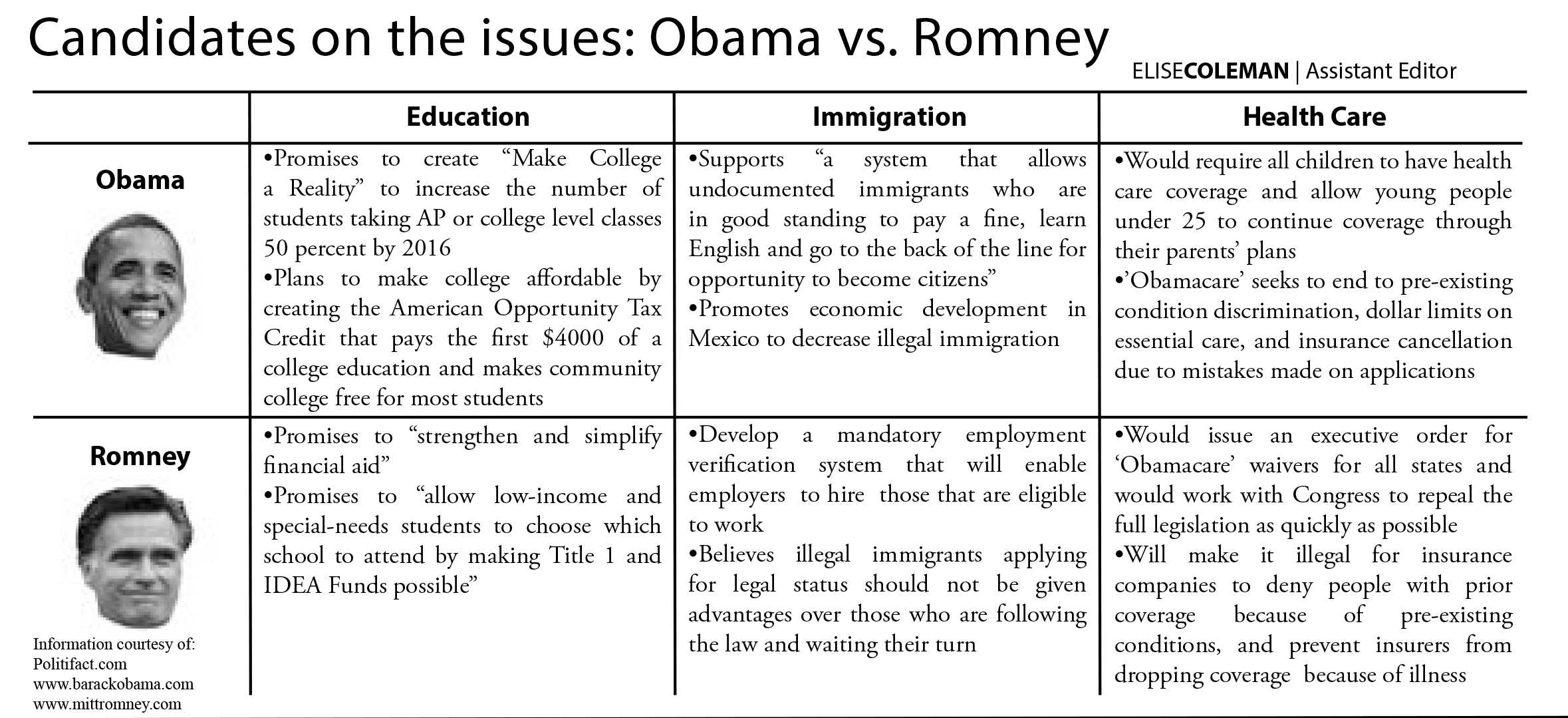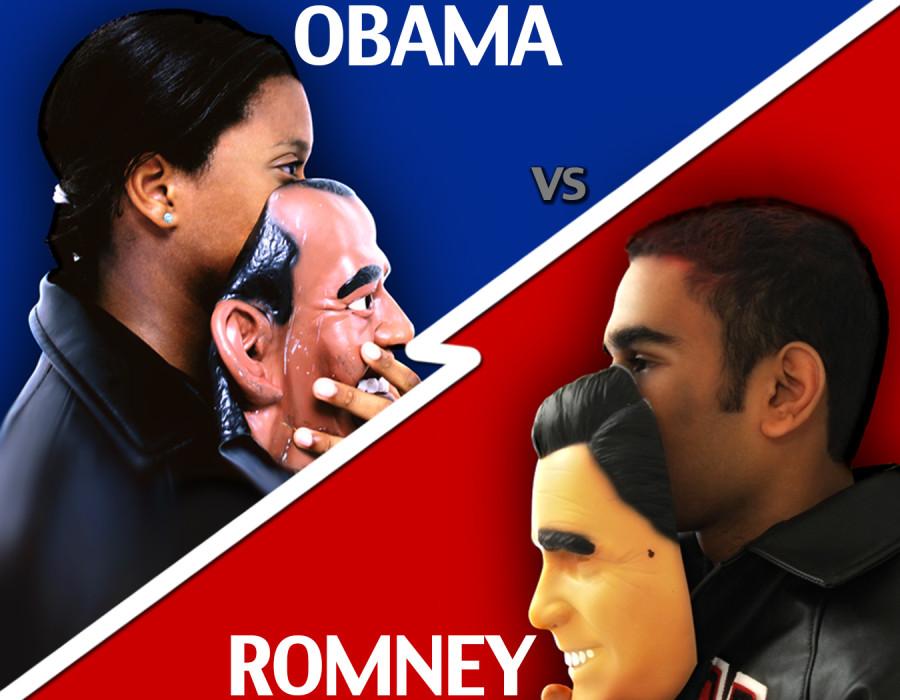Double checking the completed registration form to make sure she did not leave any required fields off, senior Stephanie Ward is prepared to vote in the upcoming presidential election. Unlike her, senior Ankur Patel is indecisive on whether casting a ballot this November is pertinent.
“Texas is mainly a Republican state, so [Republican candidate Mitt] Romney is going to get the votes anyway,” Patel said. “If your state’s been voting Republican for the past so many years, it’s going to be a guaranteed Republican state. My vote isn’t really a big deal. It’s sad to say, but your vote’s not really going to make a difference.”
Ward, on the other hand, disagrees with Patel’s statement. She believes students who are informed about politics should vote, because it is the only way their voices can be heard.
“They basically decide what’s going to happen to you at some point in time,” Ward said. “And you just kind of want to have a say in that. You just don’t want them to have their own free reign to do whatever and have no checks. Because if they decide something you don’t want, if essentially you don’t vote, you’re kind of letting them do whatever they want in a way.”
Because President Barack Obama is pro-choice, in terms of abortion and believes gay marriage is not an issue, Ward leans toward Obama’s stance. Also, she agrees with him that tax rates should increase for the we
althy, while the middle class should experience tax cuts.
“Romney wants tax cuts for the wealthy, because he considers them job creators,” Ward said. “Obama wants no tax cuts on the wealthy, because he doesn’t think they create many jobs. And they should actually pay more than the average person, because right now, the wealthy actually pays less taxes than the average person because of the loopholes.”
Another viewpoint that Ward shares with Obama is his suggestion for the Affordable Care Act, also known as ‘Obamacare’.Because Ward was born as a premature baby, who constantly needed surgery as a child, she thinks each citizen should have easy and affordable access to healthcare. She is a proponent for universal health care, because members of her extended family, including her grandmother, are on welfare and other government assistance programs and need help covering the price of medication.
“When you go off to a university, you have so many costs, and healthcare is just one of the many costs,” Ward said. “[With ‘Obamacare’] I know you can stay on your parent’s [insurance] until a certain age, 26. And a company can’t drop you if you have a preexisting condition.”
Foretelling the future, Ward would hate for her college expenses to exceed her parents’ budget. With Obama as the current president, Ward thinks the economy has improved significantly, especially since unemployment rates have steadily decreased since 2008 and progress has been proven in today’s stock market.
“He’s more focused on the economy, because if the economy’s not bet
ter, education won’t get better,” Ward said. “Of course, some people can’t even afford [going] to school in the first place once they see the price. As tuition goes up, everything else goes up. [This] puts us in a bad economy.”
Tuition costs are a concern for many high school students and will be even more so to soon-to-be graduates. Patel thinks Obama’s viewpoints are unreasonable, and he considers Obama to be a Socialist. According to Patel, he may not pursue the career of his dreams, because he feels Obama chooses to increase taxes on those who are considered well-off.
“I’m not saying that I’m rich,” Patel said. “But I’m going to be a doctor one day, and that’s 15 years of schooling. I have to pay off that money. If I’m not making a good salary, what’s the point of me being a doctor? Medical school is expensive. You got to pay off your bill somehow. I want to help people too, but I also want to enjoy it enough to where I don’t have to worry about paying my next bill off.”
While both students may disagree on which president is a better candidate, they can agree that it is important to stay politically informed.
“I know many people can be apathetic, but soon, when you graduate and go off to college, off to the real world, there will be many things that [policymakers] basically decide that will affect you,” Ward said.“They will decide how the economy is, and that determines if you’re able to find a job or go to college for a decent price. Or s
ocially, if they happen to be gay, if they get married or not. Or if they’re a woman, if something happens and they need to have abortion, whether they can have it or not.”
Patel insists that one of his classmates will lead the country in the near future. He hopes that the ensuing president will have experience and the appropriate knowledge for decision-making.
“We’re the future,” Patel said. “Somebody who is in high school right now will one day be president, so it’s important to be involved from an early age.”



